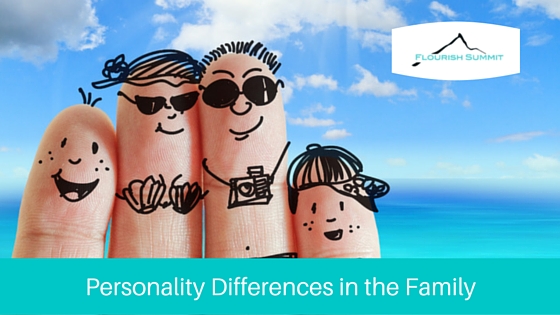Now that the holidays are upon us, we start hearing the jokes about spending time with our families. Some people are excited to spend time with their loved ones, while others would rather have a root canal. If you keep in mind that we all have different personality traits and by understanding those differences, we can not only survive these family gatherings, but even look forward to them.
Our personality types determine in part how we process the world, and most human beings assume – incorrectly – that others are processing the world exactly as they process it. Sometimes, parents and children have same or similar personality types, which makes the relationship run more smoothly – at least until the natural rebellion of puberty kicks in! People with the same type naturally understand each other’s desires and motivations. They know how to communicate and interact with one another to be understood and accepted. They approach problem solving and express emotions similarly. Basically, they speak the same language.
But in looking at the members of most families, it’s almost like a session of the United Nations where everyone speaks a different language and needs a translator!
It’s pretty clear that children are often different types than their parents. Some parents respect this and do their best to translate into their children’s language. But parents who are unaware of how different types operate or who subscribe to the “blank slate” theory, often wrongly assume that their child is (or should be) their same personality type and that child does (or should) process the world as they do and does (or should) speak the same language. This doesn’t work out well because personality is inherent. Assuming that a child with a different personality type can process things exactly as the parent processes them or trying to get a child to be who he is not causes frustration in the parent and confusion (and sometimes damage) in the child.
We enter life, not as a blank slate, but with various qualities, characteristics, and preferences for dealing with the world. These intrinsic characteristics with which we are born mean that we enter life with some filters already in place. Aspects of our personality that are part of us are our gifts and our strengths. At birth, we have complete understanding of everything. But as we grow, the external environment with its beliefs and messages begins to overwhelm our internal knowing. In response, we create beliefs and the strategies that limit us. A child is not born as a blank slate. Each of us is born with everything we need. As we grow, we then accumulate a lot of not-so-helpful “stuff” that can be many generations in the making.
You don’t have to pretend to understand all of these differences, but if you respect that they exist and give everyone the space to be themselves, you’ll have a much better experience at your next family get-together.
